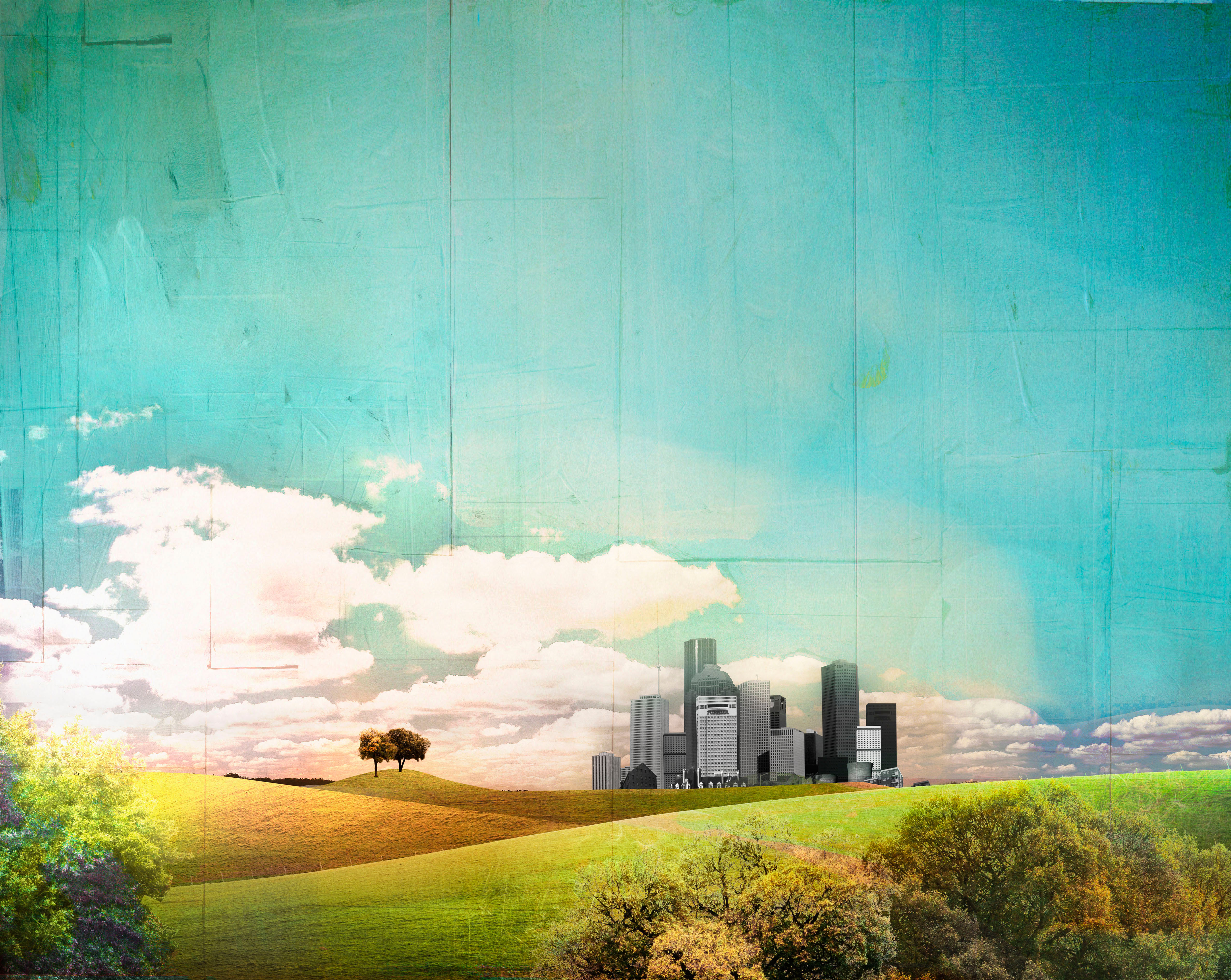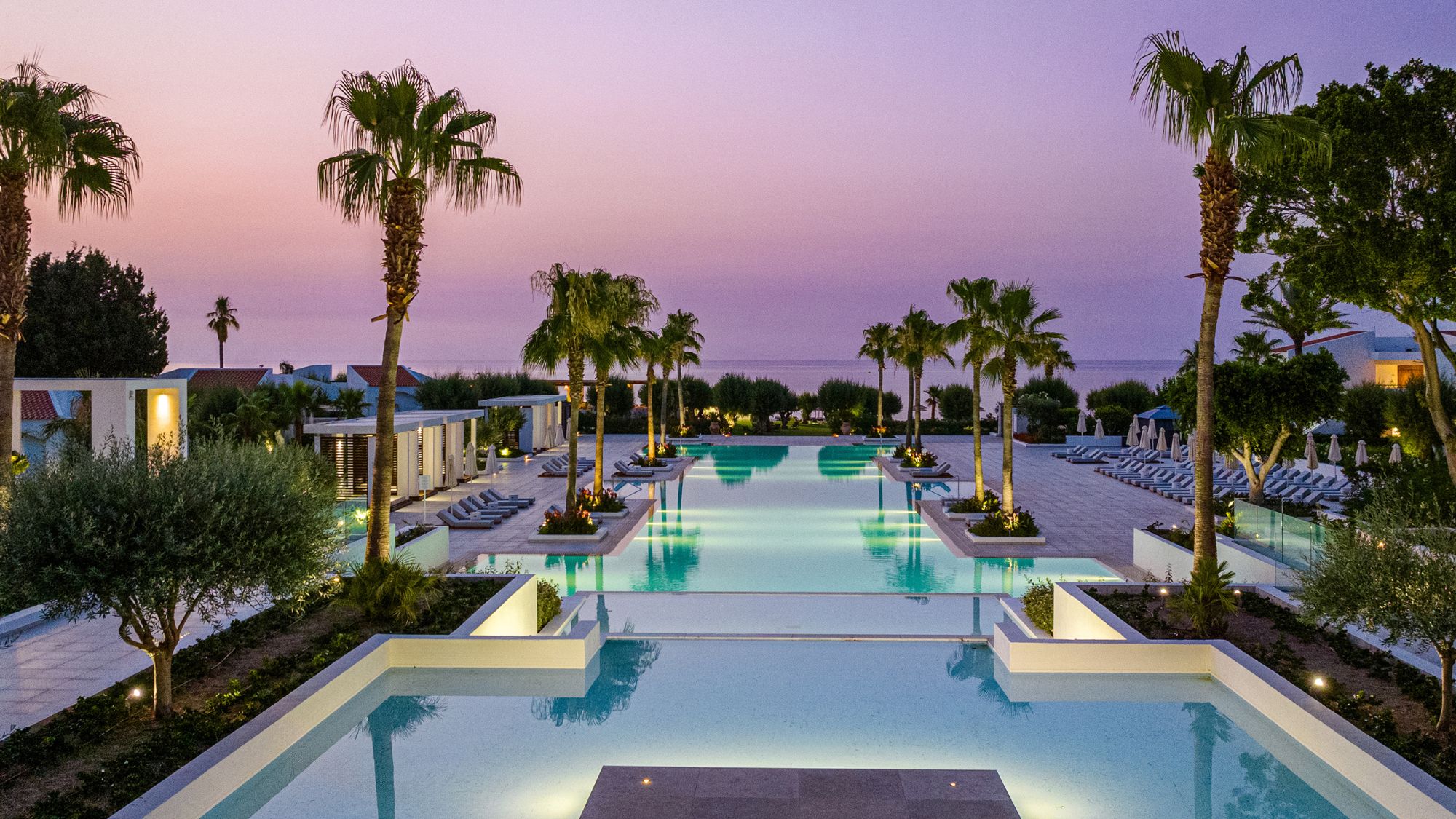It's not elites vs. populists. It's cities vs. the countryside.
On the growing chasm between American cities and the rest of America


Across the West, from the U.K.'s Brexit to the rise of Donald Trump in the U.S., societies are dividing along similar fault lines. But we can't quite agree on how to describe it: Neoliberal centrists vs. antiliberal extremists? Elites vs. populists? Globalists vs. nationalists? The establishment vs. the working class?
Each of those dichotomies captures something about our present moment, but none of them gets at the fundamentals — the sociological core of what we're all living through, which is a growing socio-cultural chasm pitting the city and the countryside against each other.
In an important essay for The Washington Post, Will Wilkinson recently examined President Trump's consistent rhetorical hostility to cities and noted the salience of the urban-rural divide for understanding the outcome of the 2016 election. "The bigger, denser, and more diverse the city, the better Hillary Clinton did in November. But Trump prevailed everywhere else — in small cities, suburbs, exurbs, and beyond."
The Week
Escape your echo chamber. Get the facts behind the news, plus analysis from multiple perspectives.

Sign up for The Week's Free Newsletters
From our morning news briefing to a weekly Good News Newsletter, get the best of The Week delivered directly to your inbox.
From our morning news briefing to a weekly Good News Newsletter, get the best of The Week delivered directly to your inbox.
And so it has been in other places as well. In the Brexit vote, London strongly voted to stay in the EU, while less densely populated industrial centers and more rural areas voted to leave. Most recently, Recep Tayyip Erdogan's anti-democratic referendum in Turkey narrowly passed despite strong opposition in Istanbul and Ankara, because it was strongly supported in outlying areas. The same is likely to happen in France's upcoming presidential election, in which Marine Le Pen of the far-right National Front will do well outside of Paris while losing the capital in a landslide.
Since the time of Aristotle, political philosophers have noted that those who live in cities have a different sensibility than those who live in the countryside. The American constitutional framers were certainly aware of and concerned about the difference. Thomas Jefferson famously declared that republican government needed to be founded on the virtues practiced and fostered by yeomen farmers — and fretted that commerce encourages vices that could be incompatible with it. Alexander Hamilton, meanwhile, placed his hopes for the future of the country in capitalistic dynamism and technological modernity — both of which were most highly developed in urban centers.
Today we face problems generated less by the triumph of one alternative over the other than by the persistence of each, and the increasingly rancorous clash between them.
Cities tend to be wealthier than less densely populated areas, but also more stratified, while more rural areas are poorer but more egalitarian. Urban populations also tend to be better educated (and highly skilled) overall, more ethnically diverse (with more immigrants), and less religious, while the countryside is less skilled, more homogeneous (in American terms: white), and more religious (though church attendance even in rural areas appears to be falling).
A free daily email with the biggest news stories of the day – and the best features from TheWeek.com
Then there are the deeper socio-cultural differences.
Speaking at the level of ideal types, cities tend to be more dynamic, marked by rapid change, with the people who live there assuming that such changes make things better over time. The countryside, by contrast, is less dynamic, with changes happening more slowly, along with the assumption that changes often make things worse. These clashing sensibilities contribute to political differences between the different regions. Cities tend to be more optimistic and thus politically liberal or progressive. Rural areas, by contrast, are more pessimistic, or at least marked by doubts that change will yield improvements; hence the penchant for conservative or reactionary (at times right-wing populist) politics among voters in less densely populated places.
These socio-cultural and political differences are partly rooted, in turn, in the enduring experiencing of life in both places. In the low-density and underdeveloped countryside, people live in much closer proximity to nature, surrounded by forces human beings only marginally control. In that context, individuals, families, and communities tend to feel smaller, less omnipotent, more vulnerable.
In cities, by contrast, people live in a largely controlled environment, surrounded by pavement and concrete, dwarfed by large buildings constructed by human beings, immersed in massive infrastructure projects. Nighttime illumination even blocks out the stars, replacing the vault of the heavens with the rapidly moving blinking white and red lights of the airplanes that shuttle us from city to city at all hours of the day and night. It's a largely artificial world created by people and insulated from extra-human forces that, to a remarkable extent, we’ve succeeded in mastering for the sake of human betterment.
These enduring differences in rural and urban experiences have been exacerbated by recent economic trends, as cities have become magnets for the hyper-educated winners of our civilization's ceaseless meritocratic striving as well as immigrants longing for a better life, turning them into vibrant hubs of big business, high tech, and the services that support them. At the same time, the countryside has lost the manufacturing jobs that once served as its economic ballast, leaving only a limited number of service jobs behind, and sometimes not even those.
The city enjoys strong growth, while the countryside endures slow, grinding decline, along with the physical and spiritual maladies that accompany it. And in the process, each region becomes more what it already tended to be — with the cities more convinced than ever of their self-sufficiency and virtue, and the countryside becoming darker and less hopeful, more pessimistic and angry about the injustice of living in a country where the pace of change constantly accelerates, and the resulting changes consistently make life harder and less fulfilling.
It’s hard to know how to formulate a productive response to these trends, but Paul Krugman's Monday column stands as an excellent example of an approach that won't do any good. Mocking President Trump's (most likely empty) promises to bring back mining and manufacturing jobs, Krugman tells those who once worked in those sectors and now find themselves unemployed to stop whining. "In an ever-changing economy, jobs are always being lost: 75,000 Americans are fired or laid off every working day." This is the ceaseless churn of capitalism's creative destruction, and the role of government in that churn is to provide benefits to soften the blows individuals and communities end up having to absorb, all the while acting "to keep the overall economy strong."
The most important word in that passage is "overall." If job losses and gains were being felt equally throughout the country, then focusing on keeping the "overall economy strong" and providing Band-Aids to heal the wounds it inflicts might be politically sensible advice. The problem is that job losses and gains haven't been felt equally over the past two decades. The pain has been concentrated in the low-density countryside, with most of the benefits going to high-density cities and suburbs. The latter just keeps getting better while the former just keeps getting worse.
That's a recipe for exactly what we have: worsening political and regional polarization, along with growing anger and incomprehension on both sides. And as each of those get worse, people stuck in stagnant communities will be less inclined to relocate to places with more prospects. Uprooting oneself and one's family is challenging enough. When it requires immersion and assimilation into what appears to be a profoundly hostile foreign culture, the obstacles can seem insurmountable.
And so the divide deepens, with no clear end in sight.
Damon Linker is a senior correspondent at TheWeek.com. He is also a former contributing editor at The New Republic and the author of The Theocons and The Religious Test.
-
 Ghislaine Maxwell: angling for a Trump pardon
Ghislaine Maxwell: angling for a Trump pardonTalking Point Convicted sex trafficker's testimony could shed new light on president's links to Jeffrey Epstein
-
 The last words and final moments of 40 presidents
The last words and final moments of 40 presidentsThe Explainer Some are eloquent quotes worthy of the holders of the highest office in the nation, and others... aren't
-
 The JFK files: the truth at last?
The JFK files: the truth at last?In The Spotlight More than 64,000 previously classified documents relating the 1963 assassination of John F. Kennedy have been released by the Trump administration
-
 'Seriously, not literally': how should the world take Donald Trump?
'Seriously, not literally': how should the world take Donald Trump?Today's big question White House rhetoric and reality look likely to become increasingly blurred
-
 Will Trump's 'madman' strategy pay off?
Will Trump's 'madman' strategy pay off?Today's Big Question Incoming US president likes to seem unpredictable but, this time round, world leaders could be wise to his playbook
-
 Democrats vs. Republicans: which party are the billionaires backing?
Democrats vs. Republicans: which party are the billionaires backing?The Explainer Younger tech titans join 'boys' club throwing money and support' behind President Trump, while older plutocrats quietly rebuke new administration
-
 US election: where things stand with one week to go
US election: where things stand with one week to goThe Explainer Harris' lead in the polls has been narrowing in Trump's favour, but her campaign remains 'cautiously optimistic'
-
 Is Trump okay?
Is Trump okay?Today's Big Question Former president's mental fitness and alleged cognitive decline firmly back in the spotlight after 'bizarre' town hall event



